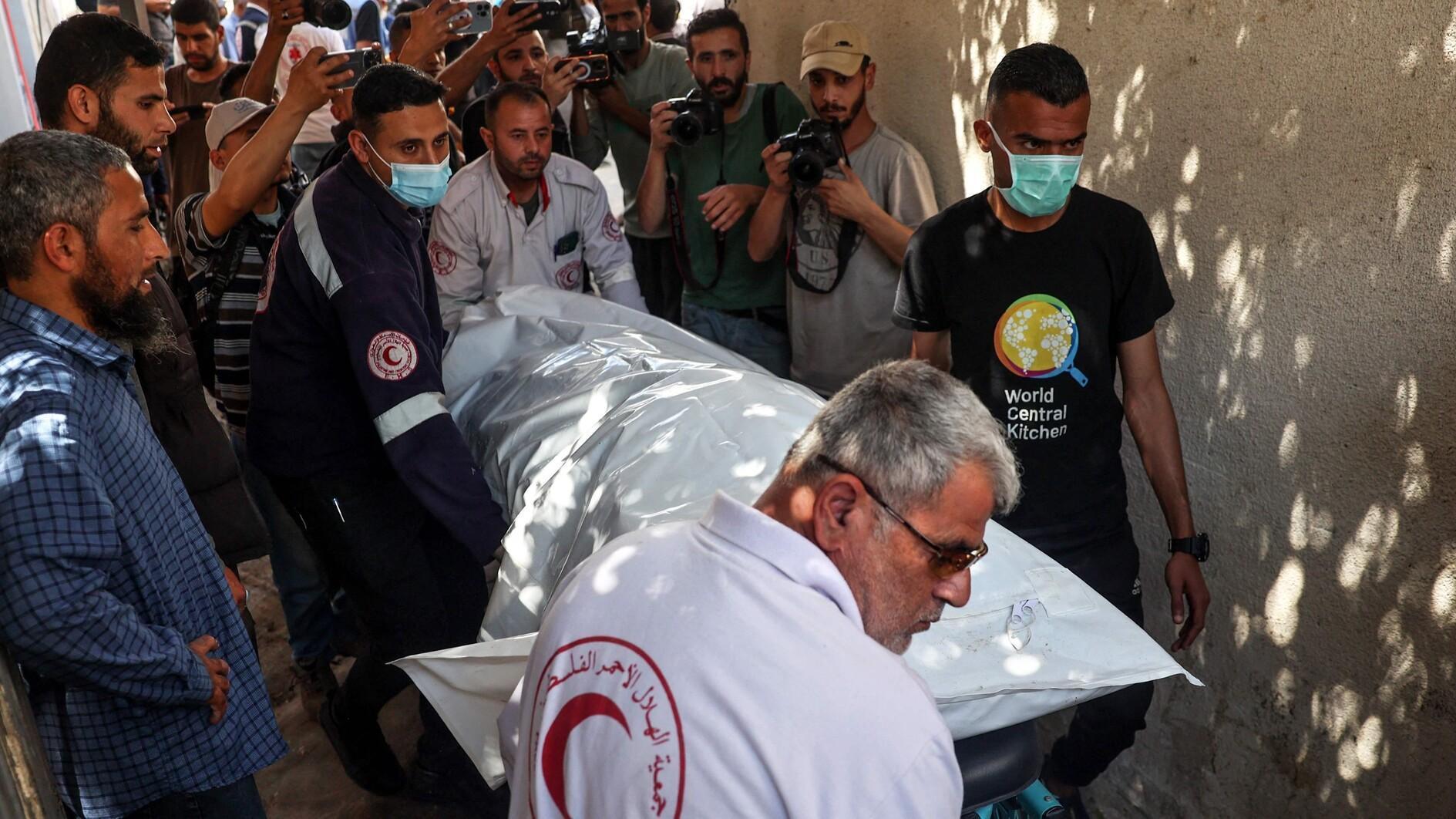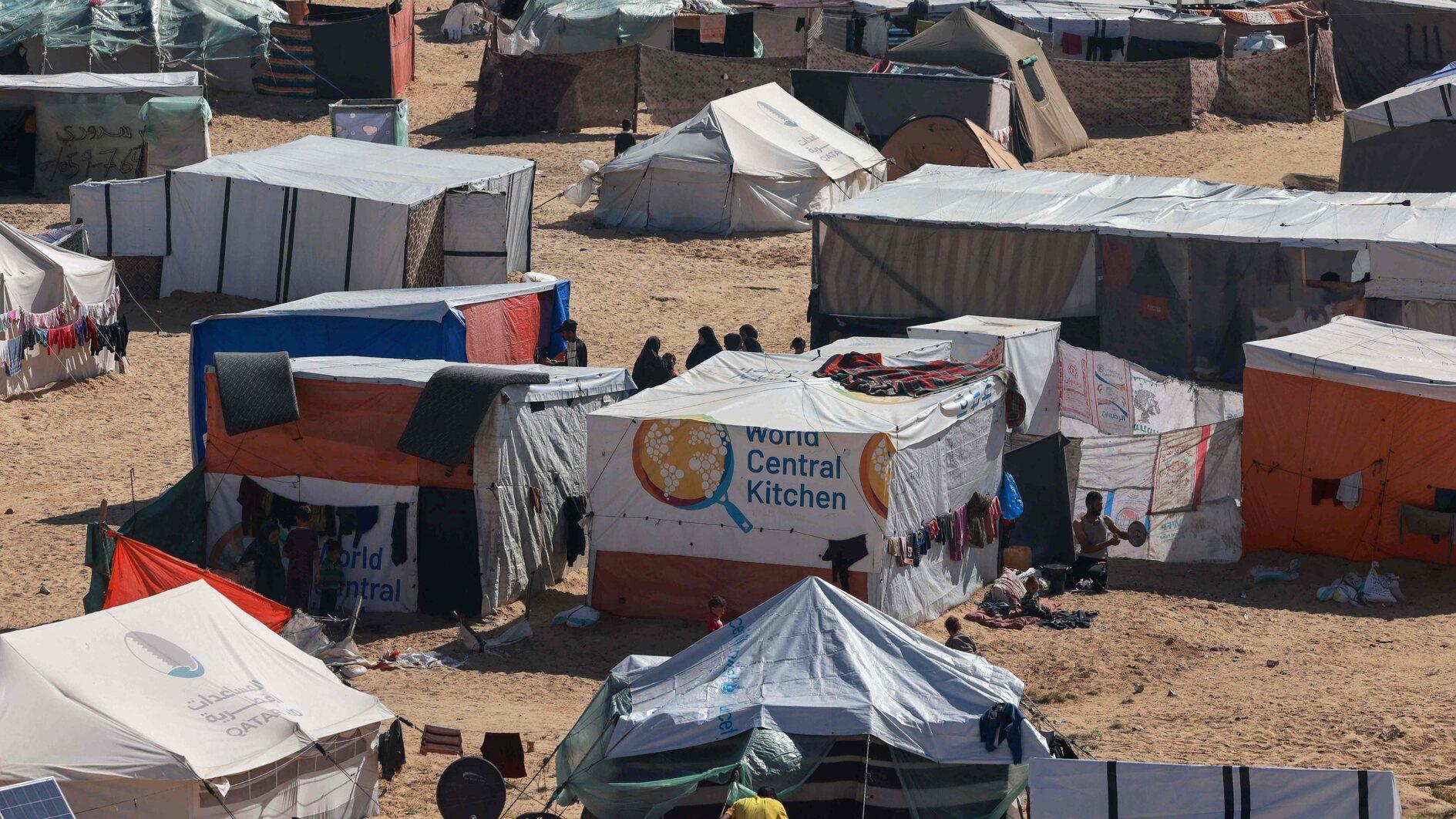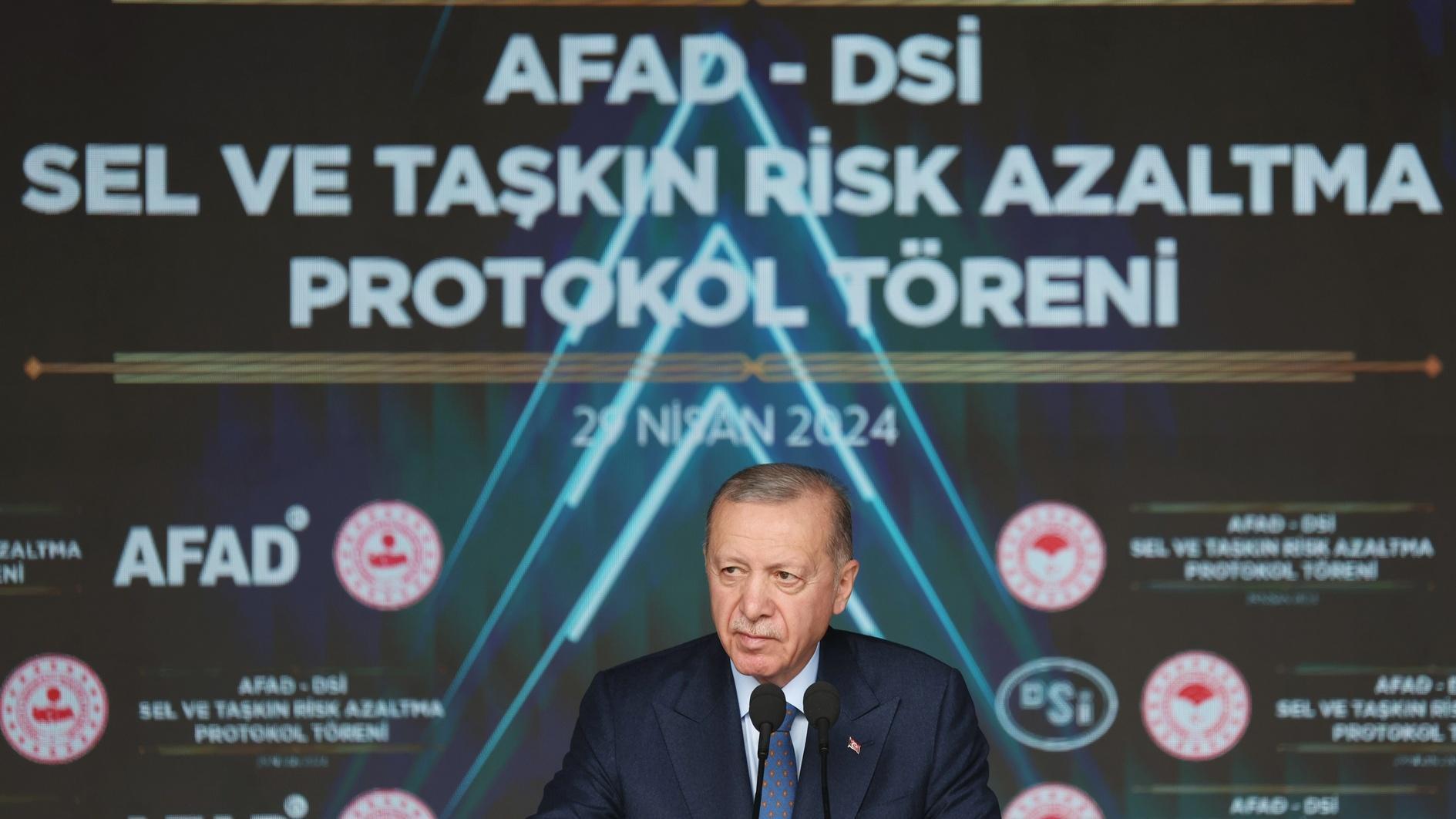Biden, Netanyahu to speak by phone following Gaza aid deaths
WASHINGTON

The leaders of the United States and Israel were set to speak on Thursday after Washington expressed "outrage" over Israel's killing of seven aid workers and growing concern over its military operations in besieged Gaza.
President Joe Biden and Prime Minister Benjamin Netanyahu will hold their first phone discussions since the Israeli strikes on Monday killed the employees of the U.S.-based charity World Central Kitchen.
The bodies of six foreign staff of WCK — Australian, British, Polish and U.S.-Canadian citizens — were repatriated from Gaza via Egypt on Wednesday, while the Palestinian employee was laid to rest in Gaza.
Biden said he was "outraged and heartbroken" by the attack which sparked strong condemnation worldwide including from a host of national leaders, the U.N. secretary-general and the pope.
Biden and Netayahu were also expected to discuss Israel's plans to send ground forces into Gaza's densely crowded far-southern city of Rafah, and Israel's wider conflict with Iran and its allies after it was blamed for a deadly strike on the Iranian consulate building in Syria's capital.
The U.S. president has supported Israel in the almost six-month-old war sparked by Hamas's Oct. 7 attack and kept up military supplies to its regional bedrock ally.
But, amid rising domestic anger at the war in a U.S. election year, his administration has also voiced frustration with Israel's right-wing premier over the conduct of the war and the suffering of Gazans.
U.S. Defense Secretary Lloyd Austin also "expressed his outrage" at the aid workers' killings — which Israel has admitted to and pledged to investigate — in a phone call with his Israeli counterpart Yoav Gallant, the Pentagon said.
Austin stressed the need to protect aid workers and civilians and for "a rapid increase of aid" into Gaza, "particularly to communities in northern Gaza that are at risk of famine".
'Concern' over Rafah plan
Netanyahu has vowed to destroy Hamas, including in Rafah, and bring home the hostages, while pledging to move the more than one million civilians in the city out of harm's way first.
Austin said the aid charity "tragedy reinforced the expressed concern over a potential Israeli military operation in Rafah, specifically focusing on the need to ensure the evacuation of Palestinian civilians and the flow of humanitarian aid".
The Israeli army said Gallant and Austin had discussed "plans to expand operations to address Hamas' remaining battalions and military capabilities".
It said the two had also "discussed the threat posed by Iran and its proxy activities", after Israel was blamed for the Damascus strike Monday that killed seven Iranian Revolutionary Guards, two of them generals.
Iran's Supreme leader Ayatollah Ali Khamenei vowed in a social media message that "with God's help we will make the Zionists repent of their crime of aggression against the Iranian consulate in Damascus".
The Israeli military said Thursday that, after a "situational assessment, it was decided to increase manpower and draft reserve soldiers to the IDF Aerial Defense Array".
As Netanyahu has fought the war, he has faced intense domestic pressure from the families and supporters of the hostages still held in Gaza, and from a resurgent anti-government protest movement.
A street protest in Tel Aviv to highlight the hostage crisis featured signs that warned "they are out of time", and a gagged man whose hands were tied with wire.
War cabinet member Benny Gantz, a centrist political rival of Netanyahu, has demanded that snap elections to be held in September, a call rejected by Netanyahu's Likud party.
The bloodiest ever Gaza war began with Hamas's October 7 attack, which resulted in the deaths of about 1,170 Israelis and foreigners, mostly civilians, according to an AFP tally based on Israeli official figures.
Israel's retaliatory campaign has killed at least 33,037 people, mostly women and children, according to the health ministry in Hamas-run Gaza.
Palestinian militants also took more than 250 hostages on Oct. 7, and 130 remain in Gaza, including 34 who the army says are dead.
Talks for a ceasefire and hostage release deal have stalled, with both sides blaming each other.
An informed source within Hamas told AFP that "there is nothing new in the latest negotiating round, and the occupation (Israel) continues to be stubborn, procrastinate and disrupt any ceasefire agreement".
'Food for our families'
In war-torn Gaza, where vast areas have been reduced to rubble, 2.4 million Palestinians have struggled on under bombardment while enduring dire shortages of food, water, fuel and other basic supplies.
The charity Oxfam said that people in northern Gaza have been forced to survive on an average of 245 calories a day — less than a can of beans, and a fraction of the recommended average daily 2,100 calorie intake per person.
In Gaza City, Palestinians spent the night near an aid delivery spot, hoping to secure a bag of flour.
"We sleep on the streets, in the cold, on the sand, enduring hardship to secure food for our families, especially our young children," one man told AFP.
"I don't know what else to do or how our lives have come to this."
The group WCK, which called the strikes on Monday "targeted", suspended its Gaza operations and sent ships laden with undelivered supplies back to their Mediterranean port in Cyprus.
Other aid groups have curtailed or reassessed their operations, with the U.N. on Tuesday pausing nighttime movement for the "evaluation of the security issues".
The International Committee of the Red Cross also warned that "humanitarian aid organisations are unable to carry out their work safely".
















